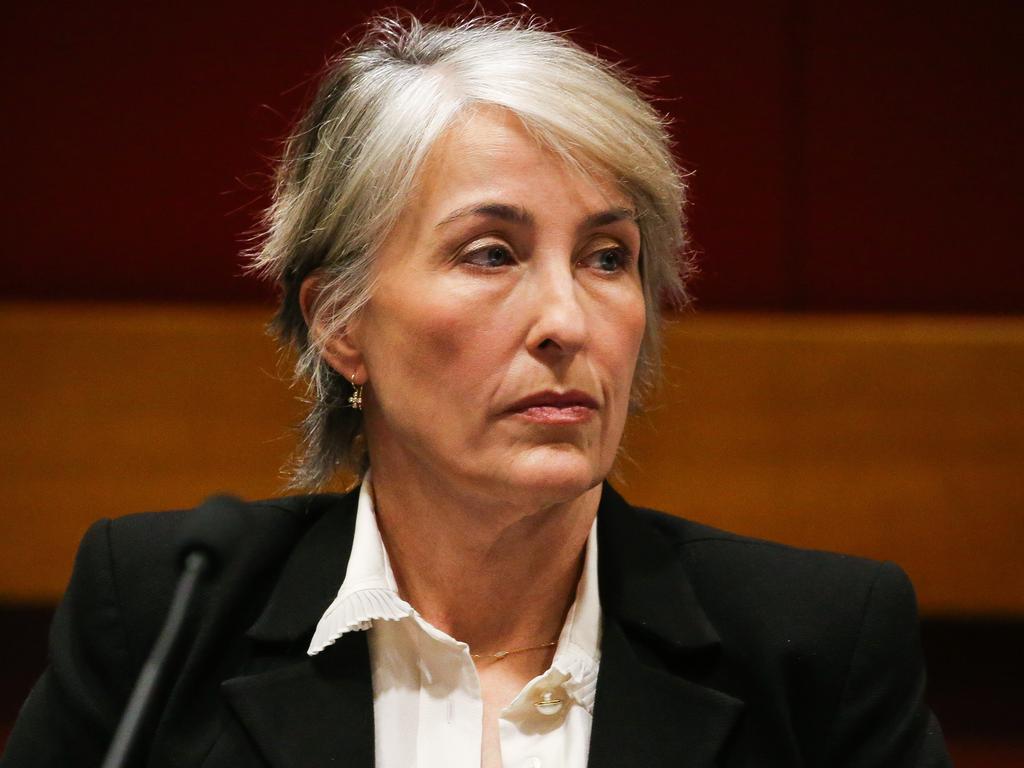
The jury took less time than an episode of Seinfeld to find Paul* not guilty of rape.
The judge said it was a dog of a case. Doomed to fail, were his exact words.
He used his judicial discretion to tell prosecutors to pay the man’s legal costs.
Yet the NSW Director of Public Prosecutions wants to go another round over legal fees with a man not just presumed innocent but found to be not guilty.
At what point does the process become punishment?
Remember that the DPP is not appealing the verdict – only the costs order.
Its decision, accessing the state’s enormous resources, risks impoverishing a young tradesman facing a legal bill for more than $100,000, who even prosecutors must accept is innocent. That’s on top of more emotional damage to the man.
No one likes to lose a case, not even a prosecutor.
However, it’s not unreasonable to wonder whether the prosecution of meritless cases is becoming deliberately, or at least recklessly, punitive.
In other words, is the NSW Office of the DPP, by its pursuit of cases with flimsy evidence, delivering a secondary form of penalty even when juries and judges won’t?
A month after the jury’s swift not guilty verdict in May, District Court judge Craig Everson SC ordered that the crown pay Paul’s legal costs because there were “significant weaknesses in the crown case that the crown must have been aware of at the outset”.
Quite apart from the “she said-he said” contested versions of the alleged sexual assault, the judge said the weaknesses included “glaring differences between what the complainant asserted she told her mother and friends about the alleged sexual assault and what those complaint witnesses stated they had been told by the complainant”.
There were other major discrepancies between what the woman claimed when giving evidence in chief versus what was elicited from her during cross-examination.

The alleged sexual assault took place while the two lovers were on holidays at Yellow Rock in the Blue Mountains.
They had been dating for some five months. The woman said after the alleged assault the rest of the holiday was “cold and tense”. Under cross-examination, the complainant admitted she had sex with Paul twice again on the holiday – on the same day after the alleged assault and the next day.
The complainant also admitted that she sent “intimate photos” to Paul four days later while they were still at Yellow Rock.
When awarding Paul costs, the judge said that while the community undoubtedly had a legitimate interest in serious crimes being prosecuted by the DPP, that did not make it reasonable for the crown to prosecute a case “in the face of significant weaknesses in the crown case of which the crown acting reasonably, ought to have been aware”.
In a scathing rebuke of the crown’s prosecution of Paul, the judge said: “To be clear, I am of the opinion that this prosecution of (Paul) was instituted, and maintained, either without, or in spite of, proper professional advertence as to whether there existed reasonable prospects of securing a conviction.”
Prosecutors will be familiar with the concept of the process becoming the punishment.
In his influential work The Process is the Punishment, former Berkeley law professor Malcolm Feeley challenged conventional views of criminal justice.
He argued that, especially in lower courts where most criminal cases were handled, the true burden on defendants lay not in the formal trial outcome but in the trial process itself.

Feeley explored how pre-trial detention, the financial and emotional toll of repeated court appearances, the length of time between charged and going to trial, the challenges of securing bail, and the loss of income due to missed work collectively imposed severe penalties on the accused.
These burdens, he argued, were often more punitive than any eventual legal sanction, effectively shifting “the locus of sanctioning away from the formal stages of adjudication and sentencing on to the process”.
Feeley’s reframing of punishment away from the actual verdict highlights how navigating the criminal justice system for an accused can constitute a significant penalty in its own right.
As this newspaper has reported, this is not the first such case where a judge has raised concerns about meritless cases coming to court.
Many others judges have criticised prosecutors for running prosecutions with no reasonable prospect of success, causing untold damage to both complainants and defendants.
The #MeToo movement has done many good things for complainants.
There is now a vast state-sponsored apparatus spanning academia, governments state and federal, bureaus of crime statistics, legal professional bodies, the National Judicial College of Australia, individual judges, all thundering in one direction – to secure more guilty verdicts and to improve the experience of complainants in rape trials.
Much of this is laudable.
Going to police, making an allegation of sexual assault, lodging a formal complaint, giving evidence, being cross-examined, these are terribly difficult for a complainant.
There is, however, an important balancing act for society.
The criminal justice system is onerous for an accused too. If he is guilty, we will say so what. But an accused is presumed to be innocent.
Being charged, questioned by police, finding a lawyer, giving evidence if that is what they choose to do, being cross-examined, putting their life on hold, losing a job, income, friends – these are all terribly hard for an accused who is, to repeat, presumed to be innocent and facing the mighty power of the well-resourced prosecuting state.
It’s popular among some misguided people to suggest that when a jury finds an accused person not guilty of sexual assault, it’s a wretched sign that the #MeToo movement is in retreat.
In fact, a not-guilty verdict is a sign that the evidence did not support a guilty verdict and almost certain imprisonment.
What do the #MeToo zealots want? That a jury deliver a guilty verdict despite insufficient evidence? A lower standard of proof to send more men to jail?
The DPP’s decision to appeal Paul’s costs award raises uncomfortable questions.
We ask, again, when has enough damage been done to an accused found not guilty? And is something bigger afoot here?
Is the NSW DPP at war with judges who are critical of prosecutors who bring weak cases to court? If so, Paul must endure the extra pain of being collateral damage in a war not of his making.
In this day and age, those accused of sexual crimes do not get a lot of public sympathy, even if acquitted.
But here is a plea to prosecutors.
If you are going to use the justice process to roll the dice, pursuing men over highly contestable allegations, at least be prepared to pay their legal costs if they are found not guilty.
Perhaps even think about compensation.
*We have used a pseudonym because a man found not guilty shouldn’t have the stain of a criminal trial hang over his life.





